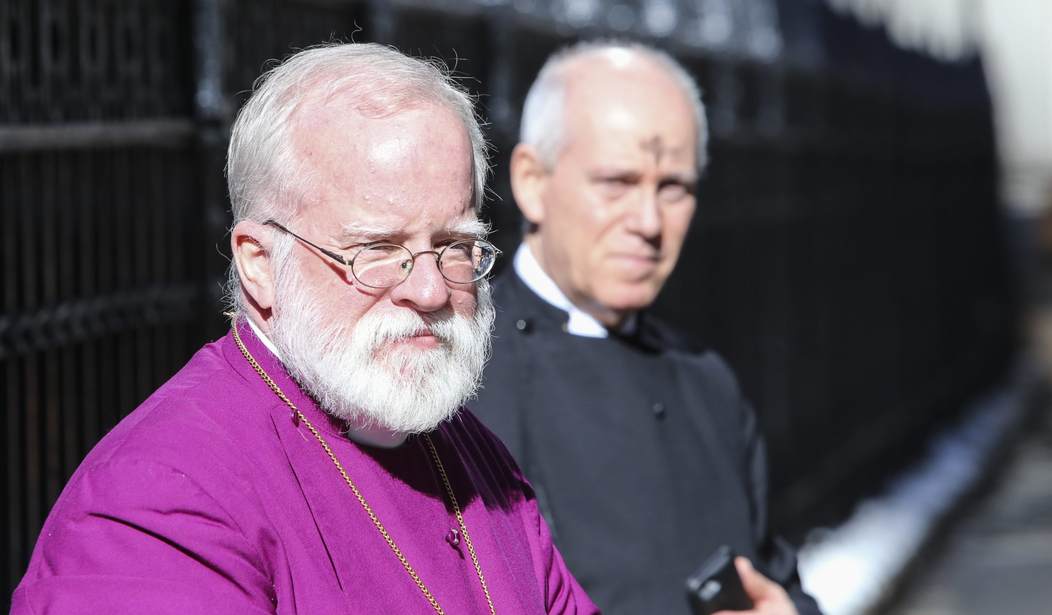How often do Americans think about death? Sin? Repentance? Lent is about remembering all these things. While looking forward to Easter, arguably the most joyful holiday in the Christian faith, Lent — and Ash Wednesday in particular — dwells on the frailty of humanity and on each Christian’s need for repentance.
In the words of the pastor (or priest) who places ashes on each forehead, “Remember that you are dust, and to dust will you return.” Christianity has been mocked as being too hopeful, as promising pie in the sky. But the Christian faith tackles death head on, and deals with it seriously.
Throughout his letters, the Apostle Paul refers to baptism as a kind of death, when the sinful man is brought to an end so the Holy Spirit can bring new life to the Christian. “We were buried therefore with [Jesus] by baptism into death, in order that, just as Christ was raised from the dead by the glory of the Father, we too might walk in newness of life,” Paul writes in Romans 6:4.
Lent is a period of fasting (40 days, not including Sundays, from Ash Wednesday until Easter), when Christians remember their sins, repent, and commemorate the sufferings of Jesus Christ in the desert and before His resurrection. It is a time of somber reflection, to prepare for the feast of Easter, when Christians celebrate the central moment of their faith — when Jesus rose from the dead, proving His divinity and giving hope to those who put their faith in Him.
The fast gives visceral meaning to the feast, which is why so many Christians “give up” sweets, alcohol, television, or a host of other things for Lent. The more Christians reflect on their sins, the more powerful becomes the truth that God Himself sent Jesus Christ to die on the cross for those sins, and in His resurrection gave a sign that sinful men and women trusting in Christ will be forgiven and raised to a new life with God.
In Romans, Saint Paul teaches that “all have sinned and fall short of the glory of God” (Romans 3:23) and throughout His ministry, Jesus Christ urges repentance from sin. The theme traces far back, to the famous penitential psalm of David (Psalm 51), which explains that God values true repentance more than outward sacrifice (verses 16-17).
For you will not delight in sacrifice, or I would give it;
you will not be pleased with a burnt offering.
The sacrifices of God are a broken spirit;
a broken and contrite heart, O God, you will not despise.
Giving up something for Lent is not a way to earn God’s forgiveness, but rather it is a way to come closer to Him, to understand the depth of one’s personal sin and to experience a small echo of the pain Jesus suffered.
The British Catholic writer G.K. Chesterton quipped that original sin is “the only part of Christian theology which can really be proved.” What can be said of human pride, malice, violence, and envy than has not been said already? Millions across the world suffer death and displacement, especially in Syria and Iraq, at the hands of human beings, and even in America a man who is the epitome of boastfulness rules, and millions are envious and hateful toward him.
But does the preacher need to mention the Islamic State or President Donald Trump to convict his congregation of sin? Does not each person snub one another, ignore and insult those closest to him or her, and mistreat others, in almost imperceptible ways? No one knows the true depths of human sin, and even a saint like Mother Teresa humbly admitted to being a sinner.
No person on earth is truly blameless, and every single one will face the ignominy of death. In the prosperous Western world, people often shove this fact into the background. There is even a movement — transhumanism — which believes that science will be able to conquer death. But only Christians point to a man who physically rose from the dead, after one of the most gruesome methods of execution imaginable.
But embracing Jesus’ powerful resurrection also means embracing his humiliating death, and embracing his astounding forgiveness means embracing the unfathomable depths of human sin. This is why Lent is such an important time, especially in the modern West, with its unprecedented prosperity. A full appreciation for the light and hope of Christianity can only come with a deep knowledge of one’s own sin and the death which each person deserves.
All this might sound like foolishness to the world, but as Paul wrote, “to us who are being saved it is the power of God” (I Corinthians 1:18).








Join the conversation as a VIP Member